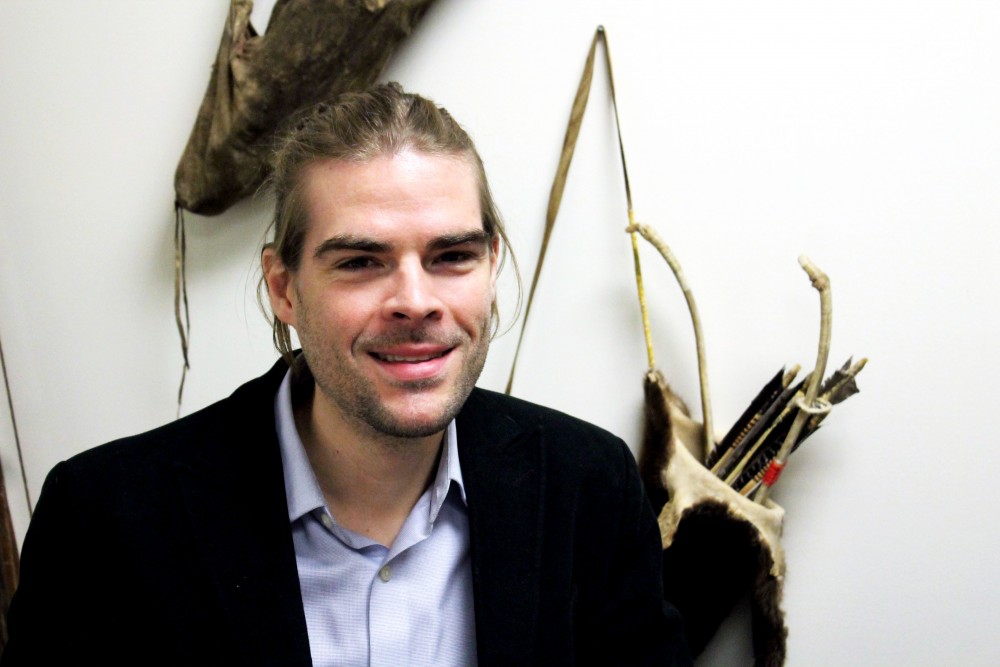New anthropology faculty member studies primates in South America

GVL / Emily Frye Professor Chris Shaffer
Nov 10, 2014
Christopher Shaffer has known that he wanted to be an anthropologist since he was a kid. He spent the majority of his days outdoors, on family trips or hiking and backpacking with his brother.
“I had a chance to go to the Amazon rainforest with my parents, and that is when I knew that I wanted to get back to the rainforest,” he said.
Shaffer is new to Grand Valley State University’s anthropology department as of this August. He is a biological anthropologist and is currently teaching ANT 206: Human Origins.
“One of the reasons that I came here and accepted this position is Grand Valley’s emphasis on teaching,” Shaffer said. “I have a really active research program, but teaching is really my favorite thing to do.”
Shaffer said he has been able to brainstorm with other faculty about new ways of teaching and that GVSU it is a wonderful place for someone who wants to teach.
Shaffer came to GVSU from the University of Missouri St. Louis, but before that, he was conducting research in Guyana, a small South American country north of Brazil.
Shaffer’s main body of research is studying how primates, including humans, get their food. He said that through his research he has learned a lot about modern Western culture.
“I think my research has changed the way that I view food and our relationship with food, so that is what I do in my culture and environment class,” Shaffer said. “The way we get food has so many enormous impacts on many aspects of our culture that we don’t necessarily think about.
“I think the main thing is to start to explore more in our own society how food affects things, not just health, but deeper aspects of our society.”
Shaffer is currently working with the Wai Wai people, found in a remote part of southern Guyana that is mostly rainforest.
He said that he would like to form a field school studying primate behavior and ecology in Guyana and teach students there.
The idea came from a visit to a field school in Nicaragua, he said, which became a springboard for doing research there.
“(Field schools) are super useful, not just for people in anthropology but for people in biology, ecology and even people who go into other disciplines,” Shaffer said.
Shaffer has countless stories and experiences, including one about being attacked by a jaguar in Guyana while doing research. His office is decked out with bows, arrows, skulls and even a replica of a shrunken head, which is often mistaken for being real.
“I don’t mind people thinking it’s real because it brings people in the door,” Shaffer said. “It’s a great conversation piece when we are trying to get people excited about anthropology.”
Shaffer said he loves his job and that students tell him he’s delusional about his excitement for anthropology. Shaffer added that anthropology is never boring because of the ability one has to explore.
“If you get bored, you can ask a question that no one has ever asked before and then go out and answer it through research,” he said.
Shaffer will be teaching several courses in the anthropology department during the winter 2015 semester.

























